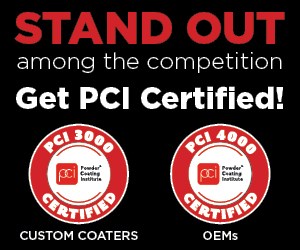Succession Planning Phobia
Franklin Delano Roosevelt said in 1933, "Fear paralyzes those who succumb to it."But some things are downright scary.
Franklin Delano Roosevelt said in 1933, "Fear paralyzes those who succumb to it."
But some things are downright scary. Especially estate taxes. Hands down the area of estate tax planning that causes the most anguish is business succession. Over the years I have consulted with hundreds of business owners, all with one thing in common: Someday they will have to face their fears and pass the management baton. Following are six questions that lead the fear factor:
- How high will my income tax/capital gains taxes be if I sell to the kids (or employees) now?
- If I don't sell now, how much will the growing value of the business increase my estate tax liability?
- What if the kids mess up? Will I get paid? Will I be able to maintain my lifestyle?
- Will the bank let me off the hook for the business loans that I guaranteed?
- How can I treat my non-business kids fairly?
- What will happen if I give up control of the business?
That last concern is typically the most formidable. About one of every three business owners who call me own 51% of their business, while the kids own the other 49%. Why 51%? The fear of losing control. Worst of all, in my experience, few professionals know what to do to calm the control fear. There's a simple solution. We take every concern the owner has and turn it into a goal. Then we apply strategy to accomplish each goal.
Following is a true example of a reader of this column. Let's list Joe's concerns, which we have turned into goals (in italics).
1) Keep control for as long as Joe lives. Joe owned 100% of the stock of Success Co. (an S corp.). We recapitalized (a fancy word for having voting and nonvoting stock) so Joe now had 100 shares of voting stock and 10,000 shares of nonvoting stock—a tax-free transaction. The strategy is for Joe to keep the voting stock (and control) to the day he dies. Nonvoting stock is transferred to the kids.
2) Transfer Success Co. to his son, Sam, without getting beat up with income/capital gains taxes. Sell the nonvoting stock to an intentionally defective trust. The tax beauty of an IDT is that Joe avoids capital gains tax on the sale (say the price is $8 million—paid with a note—and the profit is $6 million). No capital gains tax is owed on the $6 million profit and no income tax is due on the interest Joe is paid on the $8 million note. Typically, the note is paid in full over 5 to 8 years, using the cash flow of Success Co. Then, the trustee of the IDT distributes the stock to Sam, the trust beneficiary. Sam never pays even a dollar to own the nonvoting stock. An IDT sure wins taxwise to Sam because the huge tax burden on Sam for a typical sale disappears.
3) Make sure that Joe and his wife Mary can maintain their lifestyle as long as they live.
Here's a little more information: Sam does a good job as one of 80 employees at Success Co., but simply does not have what it takes to now or ever manage the business. Yet, Joe and Mary want to keep Success Co. in the family. So Sam is the only choice. But what to do about management? David, his non-related key employee, has natural business instincts, and was the logical choice. We created a non-qualified deferred compensation plan that gave David the benefits of ownership—a share of the profits, gets paid if he gets sick (covered by insurance) and $1 million (again insured) for his family if he gets hit by a bus—all without owning any Success Co. stock. David took over as president of Success Co. Joe continues as chairman of the board and consults with David regularly. Joe workss half days at full salary, with the intent to cut his salary and hours once his IDT note is paid in full. Interesting, Joe technically has absolute control but has never found a reason to exercise it.
4) Remove Joe's bank guarantee for Success Co.'s loans. That was easy. A meeting at the bank caused the term-loan provisions to be rewritten, removing the guaranty once the IDT loan to Joe was paid.
5) Treat Susan (the nonbusiness child) fairly. Besides Success Co., Joe and Mary have only $4.5 million in other assets, not enough to treat Susan equally. Remember, Success Co. is an S corporation and every year the IDT will receive a dividend from Success Co. equal to about that year's profit. Here's the strategy: We had the IDT buy second-to-die life insurance on Joe and Mary. Susan is the beneficiary of the IDT for the amount of the insurance, enough to treat Susan fairly. The premium dollars come from the dividend distributions, with the balance to pay the $8 million IDT note.
Related Content
AkzoNobel Uses VR for Training Airline Apprentices
The virtual reality technology provides a paint booth and spray gun that enables trainees to work and master their skills without losing parts in the process.
Read MoreBeware the Employee Freeloader
Clearly communicate expectations, set goals, measure performance and trust your instincts.
Read More40 Under 40: Class of 2023
Products Finishing's 40 under 40 program recognizes nominated individuals driving the surface industry forward. Meet the class of 2023.
Read MoreProducts Finishing Opens Nominations for 2025 40 Under 40 Program
PF is looking for emerging leaders who are making a difference in the surface finishing industry. Deadline for nominations is January 17, 2025.
Read MoreRead Next
Delivering Increased Benefits to Greenhouse Films
Baystar's Borstar technology is helping customers deliver better, more reliable production methods to greenhouse agriculture.
Read MoreEpisode 45: An Interview with Chandler Mancuso, MacDermid Envio Solutions
Chandler Mancuso, technical director with MacDermid Envio discusses updating your wastewater treatment system and implementing materials recycling solutions to increase efficiencies, control costs and reduce environmental impact.
Read MoreA ‘Clean’ Agenda Offers Unique Presentations in Chicago
The 2024 Parts Cleaning Conference, co-located with the International Manufacturing Technology Show, includes presentations by several speakers who are new to the conference and topics that have not been covered in past editions of this event.
Read More






















